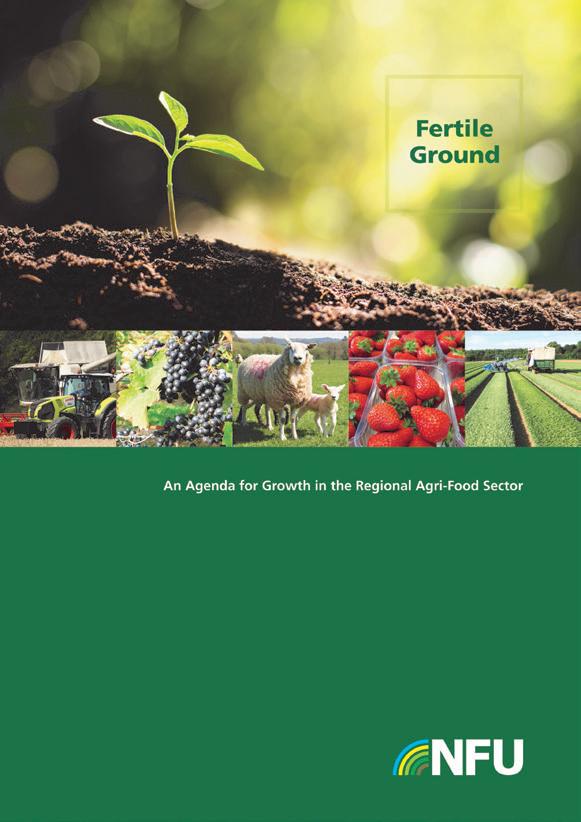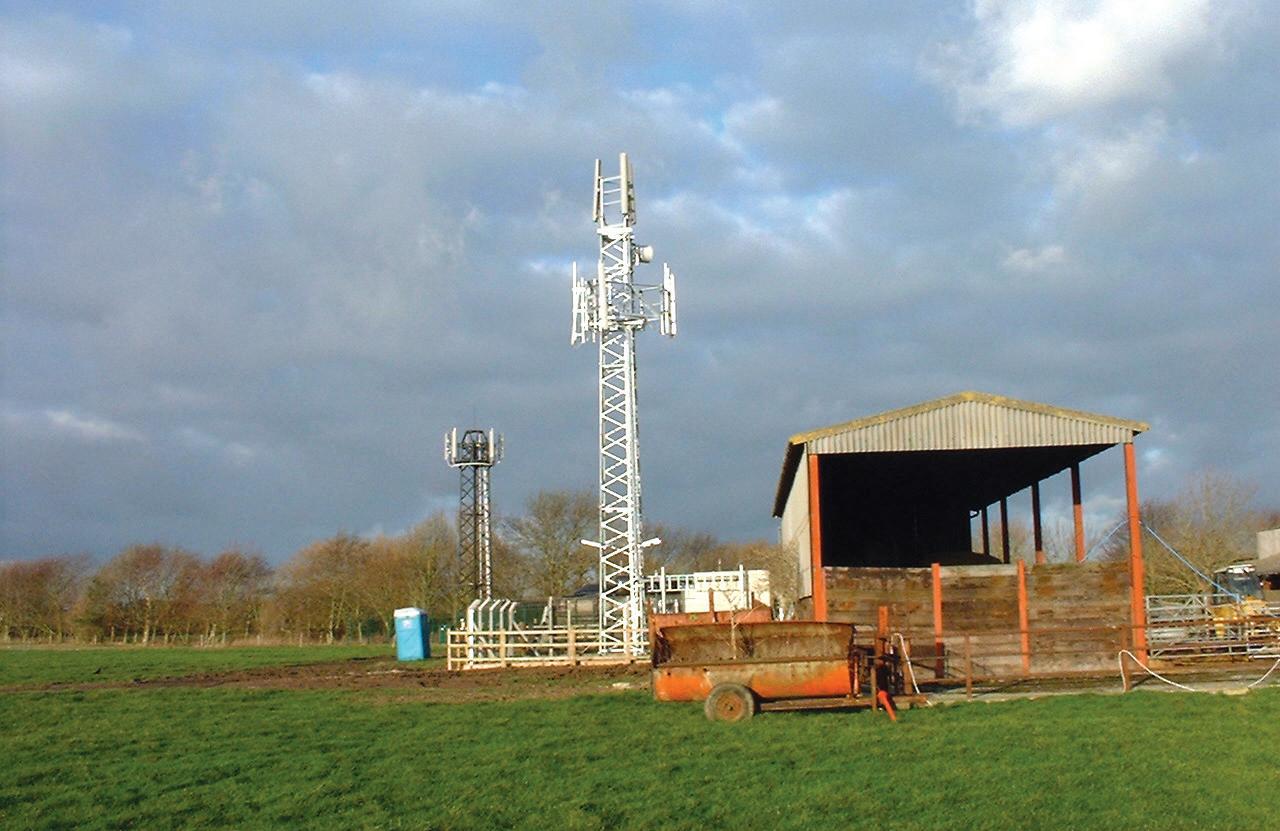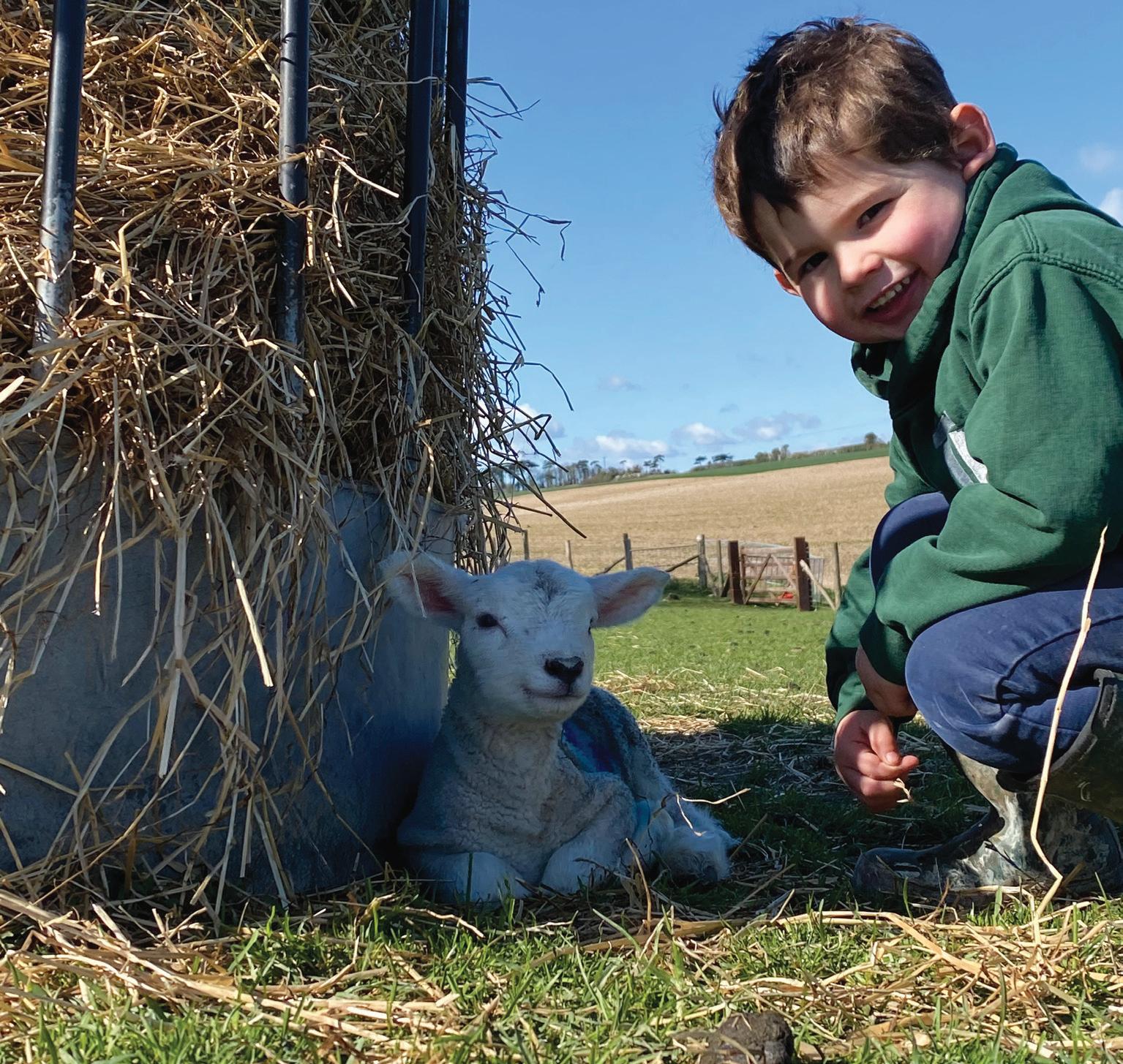
7 minute read
Fertile Ground report sets out NFU’s agenda
NEWS DYNAMIC FUTURE
Farming in the South East has nailed its colours firmly to the mast with the publication of Fertile Ground – an Agenda for Growth in the Regional Agri-Food Sector, an ambitious and hard-hitting manifesto for growth.
A painstakingly researched and well-argued document, Fertile Ground has been produced by NFU South East and sets out a dynamic future for the region’s farming and food sectors – and the support it needs to deliver that future.
Its three themes, all linked to sustainability, are agri-food productivity and jobs, a great place to live, work, eat and drink, and clean growth in a net zero economy.
While devoting a considerable amount of space to showcasing the strength of the farming and food sector in the South East – including the potential for the wine sector alone to create 21,000 extra jobs over the next 20 years – it also highlights the backing it needs from government, local authorities and others to realise future growth.
NFU South East regional board chair and West Sussex farmer David Exwood said the document was aimed not at the industry but at those who were in a position to support the sector in its aim to help create a stronger economy.
“We want decision makers and stakeholders across the region to sit up and take notice of the incredible contribution that farming already makes to the South East and to support our efforts to do even more,” he said.
“We have some great businesses here in the South East and a huge opportunity to grow further. This is a proactive attempt to get that message out there, to show exactly what modern farming is capable of and to inspire councils, local enterprise partnerships, further education establishments and businesses to work with us to build an even stronger economy.”
He went on: “This is the first document of its kind and it reflects a new era for farming. A lot of people don’t understand quite how dynamic modern farming is or how much potential it has. This document makes that clear and will be used extensively to persuade stakeholders to work with us to the benefit of the economy as a whole.
“Above all we need people to know that the South East can’t just become one big national park that we use as an offsetting area. We are doing a huge amount to improve the environment, but we have to keep putting food on the table. We can’t export our conscience and import all our food.”
The document points out that agriculture and forestry in the South East directly employ more than 50,000 people, generating annual sales topping £2 billion and contributing a regional gross value added (GVA) of £1.25 billion.
It goes on to stress the need for government and stakeholder support for jobs and growth in agriculture, which it points out will boost the regional economy as a whole.
It calls for action to boost farm productivity, ensuring farmers and growers have the skills and support systems they need to strengthen their position in the supply chain, and for measures to encourage greater public support for regional food and drink. It also highlights the need for stakeholders to work with the industry to help the nation shift to a carbon neutral economy.
Fertile Ground also tackles the issue of the ‘vital infrastructure’ that the farming and food sectors will increasingly rely on if they are to achieve the growth of which they are capable, focusing on water resources, abattoirs, dairy processing facilities, arable crop processing, vineyards and wineries and woodland and forestry infrastructure.
On water resources it calls for farmers and growers “[to] be involved in the decision-making processes at catchment level in order to plan and articulate their resource requirements over a




long-term period, just as the water industry plans resource management over a 20 year period”.
Recognising the need for improved red meat infrastructure, the document says diff erent types of abattoir “are vital to enable the proper functioning of the supply chain and to support sustainable markets”, while on the dairy front it points out that “increased manufacturing capacity could help boost domestic self-suffi ciency in dairy products and could also open up export opportunities for value added products”.
Fertile Ground stresses the need for arable farmers, merchants and processors to continually update or build new infrastructure to remain competitive and comply with legislation. It highlights the need for planners to “recognise the positive role of the burgeoning wine sector in terms of employment, economic development and tourism” and it calls for better access to be provided to woodlands in order to improve productivity.
The document lists a number of ‘priority actions’ including stimulating research and development in farm and food chain innovation, continuing to provide rural development grants, tax incentives and advice, providing new training opportunities and incentivising new producer organisations and similar bodies.
It also calls for local industrial strategies, strategic economic plans and local plans to “recognise the strong potential for growth in the farming and food production sectors and support a clear growth agenda for the industry” – and points out that planners need to understand that farmers and growers “need to invest in modern state-ofthe-art, often large buildings and facilities” in order to be competitive.
NFU South East regional director William White heralded the launch of the document by pointing out: “The farming and food sectors provide fertile ground on which to cultivate new jobs, harness technological innovations to promote growth, deliver services and boost export capacity.
“Our data shows that agriculture provides the raw material for the food sector which, before the pandemic, supported 1.1 million jobs in London and the South East. It is also key to the nation’s nutritional security.”

NEWS NFU’S BLUEPRINT FOR JOBS
The themes highlighted in Fertile Ground – an Agenda for Growth in the Regional Agri-Food Sector refl ect those set out in a national strategy document launched at the NFU’s annual conference in February.
The NFU says the report, Levelling up rural Britain, sets out a blueprint for creating jobs, boosting green economic growth, increasing exports and improving the wellbeing of the nation and describes it as “an ambitious and revolutionary approach”.
It says it “highlights how British farming and rural Britain can provide the solution to many of the challenges the nation faces by driving sustainable food production and pioneering food policy that produces carbon neutral food”.
The report suggests rural Britain is “uniquely placed to help the recovery of the nation from Covid-19, delivering physical and mental health through the farmed landscape, which has been a lifeline for so many during lockdown, and supporting the return to whole-food cooking with nutritious, sustainable and aff ordable British food”.
Stressing that “no-one should be disadvantaged by where they live or where their business is based”, Levelling up rural Britain highlights areas where the rural and urban divide continues to grow, including broadband and connectivity, rural crime, planning and investment.
In her speech to NFU Live 2021, NFU President Minette Batters said: “Investment in farming and in rural Britain not only brings about obvious benefi ts to food production but can have massive benefi ts to the whole country. If the past 12 months has taught us one thing, it’s that we are all in this together – and a country which levels up everyone, everywhere, is a stronger country.
“Levelling up Britain is not just a north and south issue. Levelling up Britain is also a rural and urban issue. We need to enable collaborative green growth to level up rural Britain, providing the economic solutions to a truly one nation UK.
She said UK farmers could “lead the world on sustainable food production, driving profi table, thriving businesses that can do even more for the environment and biodiversity”, adding: “I see that leadership every day on your farms, so let this be the decade that the rest of the world sees and buys into it too.”
> Laurence Matthews harvesting











